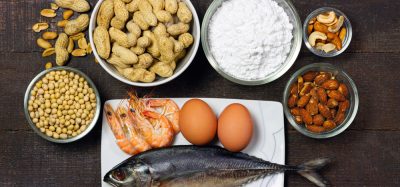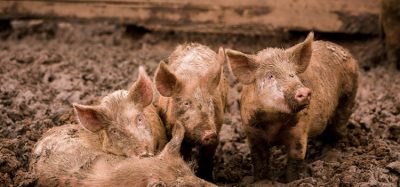Scientific Information Bulletins (SIBs) address food science issues
- Like
- Digg
- Del
- Tumblr
- VKontakte
- Buffer
- Love This
- Odnoklassniki
- Meneame
- Blogger
- Amazon
- Yahoo Mail
- Gmail
- AOL
- Newsvine
- HackerNews
- Evernote
- MySpace
- Mail.ru
- Viadeo
- Line
- Comments
- Yummly
- SMS
- Viber
- Telegram
- Subscribe
- Skype
- Facebook Messenger
- Kakao
- LiveJournal
- Yammer
- Edgar
- Fintel
- Mix
- Instapaper
- Copy Link
Posted: 1 July 2011 | IUFoST | No comments yet
IUFoST released a Scientific Information Bulletin (SIB) on the topic of Shiga Toxin Producing Escherichia coli…


The International Union of Food Science and Technology (IUFoST) today released a Scientific Information Bulletin (SIB) on the topic of Shiga Toxin Producing Escherichia coli: Germany 2011 Escherichia coli O1O4:H4 Outbreak Linked to Sprouted Seeds.
“E. coli is encountered in the gastrointestinal tract of all warm blooded animals including humans. The bacterium has a close relationship with mammals that was established some 140 million years ago when the first rodents appeared on the Earth. The vast majority of E.coli are non-pathogenic and actually are essential for health.”
“The outbreak of Shiga Toxin producing Escherichia coli O104:H4 linked to bean sprouts led to over 3800 confirmed cases of illness that included more than 823 cases of Heamolytic Uremic Syndrome (HUS) and 44 deaths (Frank et al., 2011). Although it appeared that the O104:H4 serotype came from nowhere, the pathogen had actually been isolated in Germany 10 years ago. The outbreak in Germany was more a consequence of two vulnerabilities (highly virulent pathogen and a high risk food) within the food chain coming together with disastrous consequences. “
“The purpose of this SIB is to provide background into Shiga Toxin Escherichia coli and how the O104:H4 serotype has changed our understanding of pathogenicity of E. coli. The future challenges in controlling STEC and research needs will also be discussed.”
The work of author Dr. Keith Warriner, faculty member, Department of Food Science and Director of the Food Safety and Quality MSc programme at the University of Guelph, Canada is gratefully acknowledged.
These and the other titles in the series of IUFoST Scientific Information Bulletins provide an outline of the scientific principles involved in the topic, underpinned by the scientific expertise of the authors of each SIB and including provision of key and scientifically reliable online and other sources of further information on the topic. They are produced for legislators, consumers, food science departments and the more than 200,000 members of IUFoST Adhering Bodies worldwide.Recent SIBS include Chemical Hazards in Food, Radioactive Fallout from the 2011 Japan Nuclear Plant Accident: Some Recommended Precautions and Countermeasures and Food Composition Databases. They are all available online at http://iufost.org/iufost-scientific-information-bulletins-sib Each SIB is prepared by an expert or small team of experts selected by the IUFoST Scientific Council. The draft is reviewed and approved by the IUFoST Scientific Council, the body responsible for the quality and integrity of IUFoST science activities. It is elected by the General Assembly from International Academy Fellows nominated by the Academy.








